Really, what matters in the long run is sticking with things and working daily to get better at them.
ANGELA DUCKWORTHDuring all my undergrad years and in high school, I was involved in tutoring and public service. At Harvard, I spent over 35 hours a week doing service. I was a Big Sister, I worked for the homeless, the elderly; it was the epicenter of my focus.
More Angela Duckworth Quotes
-







-







The parenting style that is good for grit is also the parenting style good for most other things: Be really, really demanding, and be very, very supportive.
ANGELA DUCKWORTH -





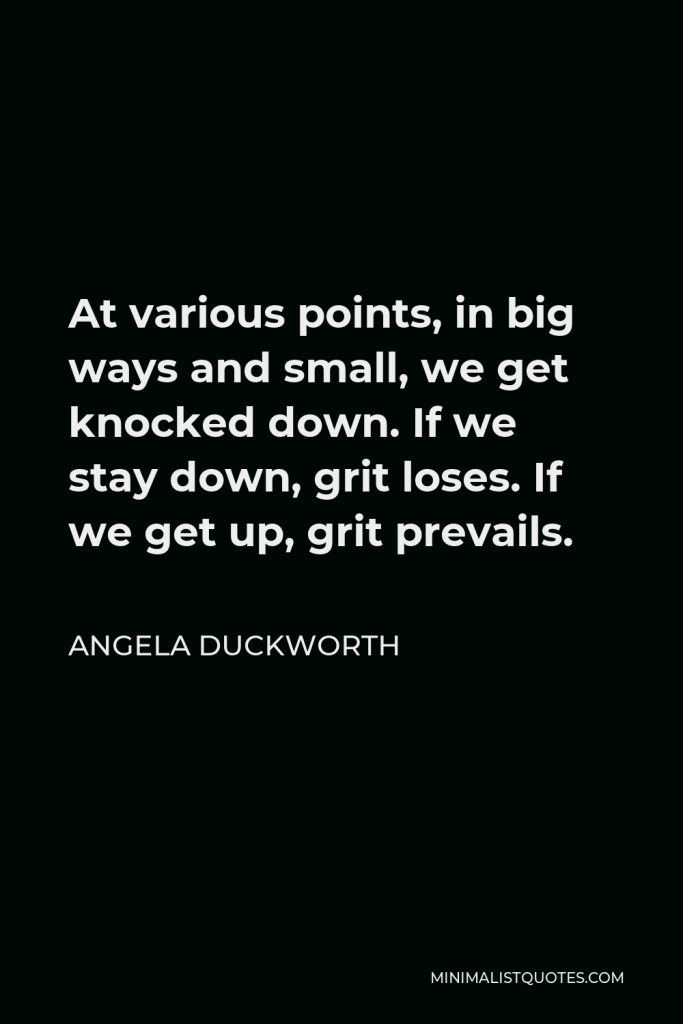

At various points, in big ways and small, we get knocked down. If we stay down, grit loses. If we get up, grit prevails.
ANGELA DUCKWORTH -





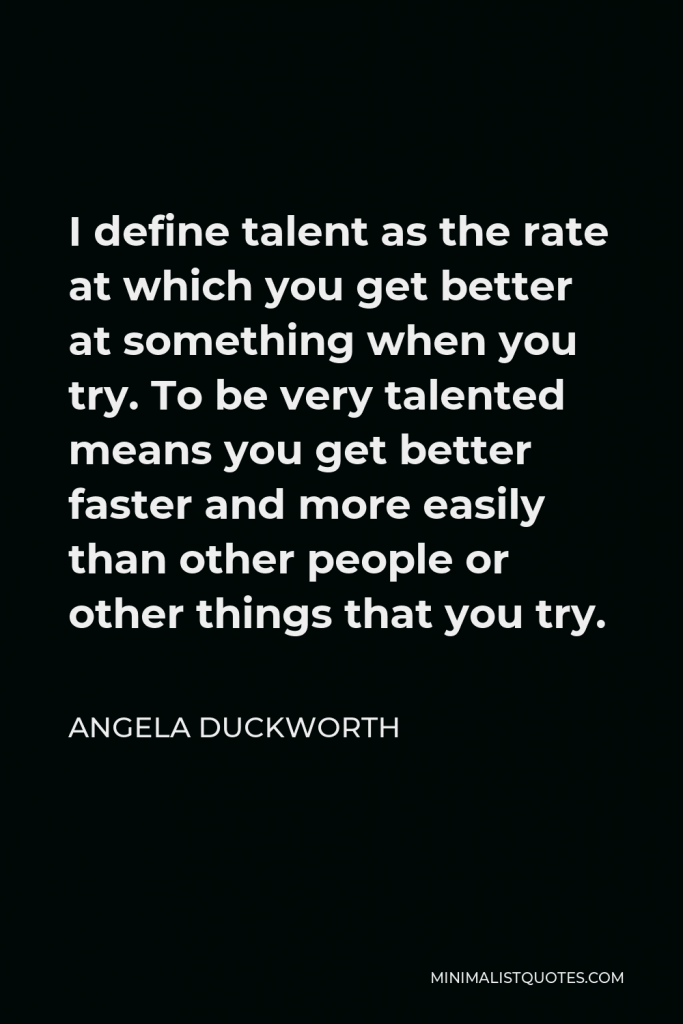

I define talent as the rate at which you get better at something when you try. To be very talented means you get better faster and more easily than other people or other things that you try.
ANGELA DUCKWORTH -







I think it’s very important to send the message that, while parents are needed to remind you to practice and occasionally force you to finish things… they also need to learn to respect you. You as an individual, ultimately, are the captain of where you’re going.
ANGELA DUCKWORTH -





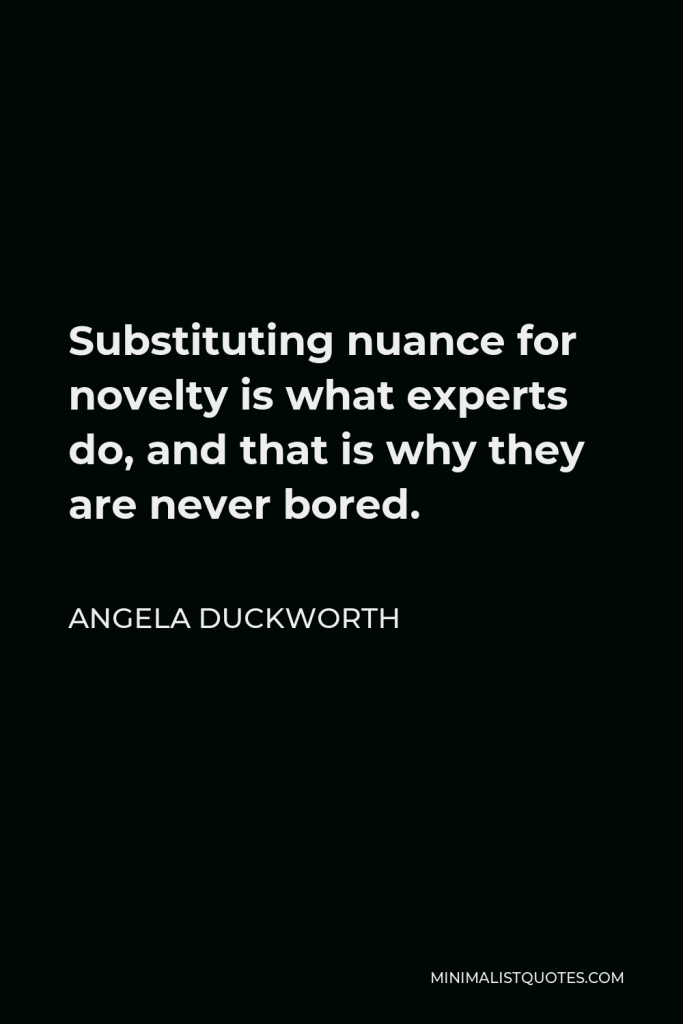

Substituting nuance for novelty is what experts do, and that is why they are never bored.
ANGELA DUCKWORTH -





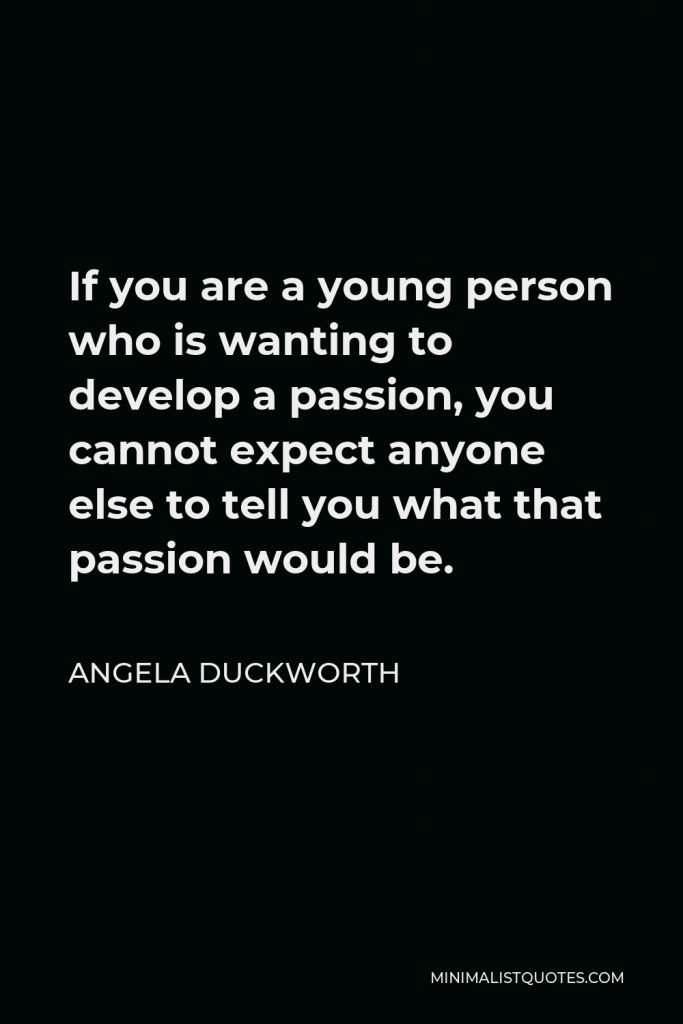

If you are a young person who is wanting to develop a passion, you cannot expect anyone else to tell you what that passion would be.
ANGELA DUCKWORTH -







My dad was not super-intentional in his parenting. He was very self-absorbed. I won’t say mean or selfish per se, but very self-absorbed. I think he was just thinking out loud.
ANGELA DUCKWORTH -







Most teachers, when surveyed, say that it is part of their job to help students develop things like grit. This is especially true at the elementary and middle school levels. They feel it’s part of their vocation to teach other things that are not formally academic content.
ANGELA DUCKWORTH -





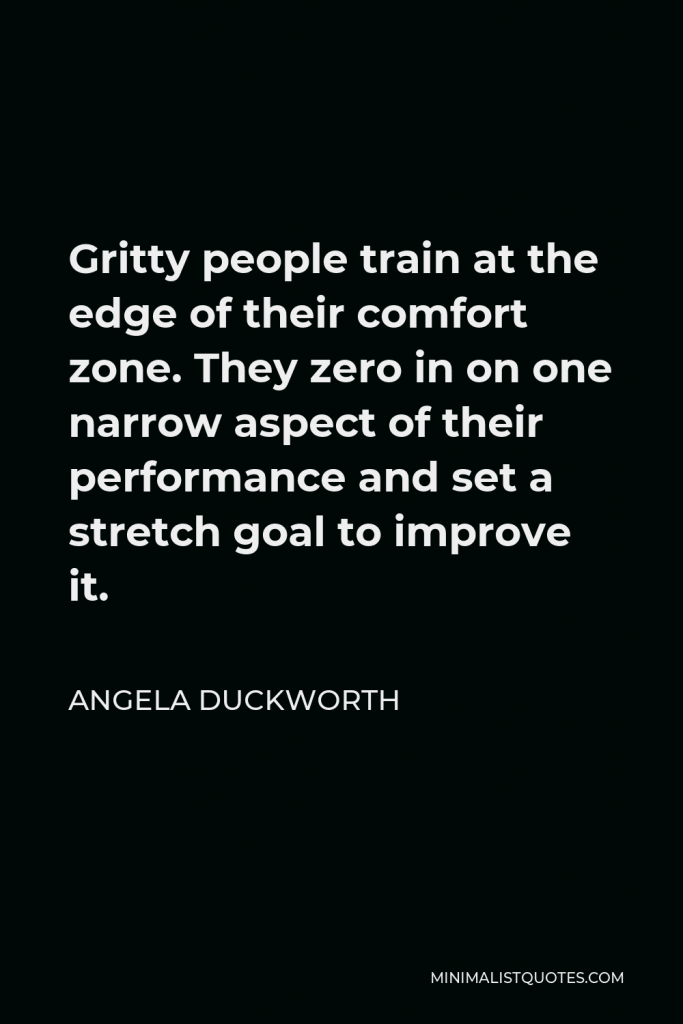

Gritty people train at the edge of their comfort zone. They zero in on one narrow aspect of their performance and set a stretch goal to improve it.
ANGELA DUCKWORTH -







I stayed for lunch for extra tutoring, gave kids my cell phone, and was available. In my first year of teaching,
ANGELA DUCKWORTH -





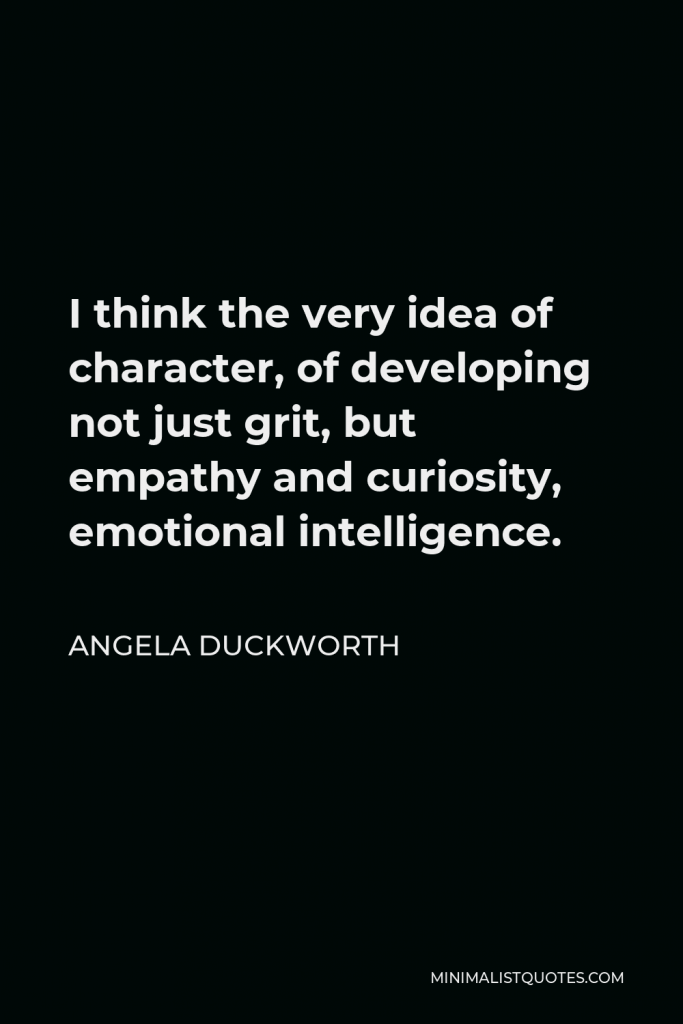

I think the very idea of character, of developing not just grit, but empathy and curiosity, emotional intelligence.
ANGELA DUCKWORTH -





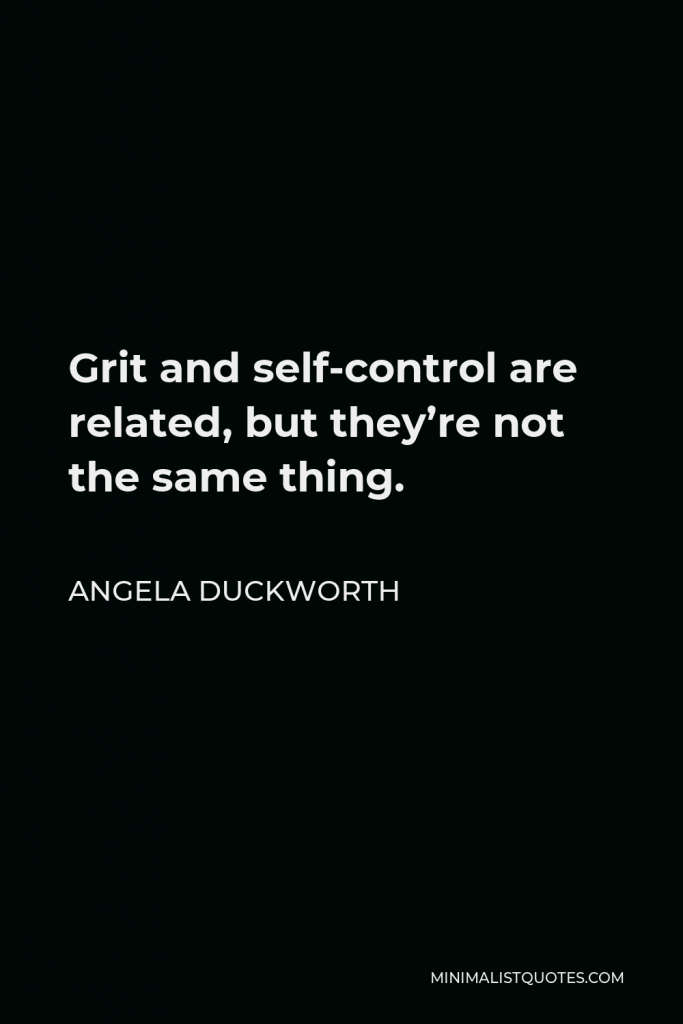

Grit and self-control are related, but they’re not the same thing.
ANGELA DUCKWORTH -







I was a good novice teacher, but I did the things that were obvious.
ANGELA DUCKWORTH -







Some people prefer a world where we’re all equally talented in everything. Whether you prefer that world or not, I don’t think that world exists.
ANGELA DUCKWORTH -







There’s this really awesome theory of human motivation – that human beings all want three things. One is to be competent, one is to belong, and one is be free, as in to have choice: to not be told what to do but to choose what to do.
ANGELA DUCKWORTH







